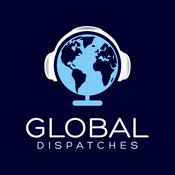Donald Trump doesn't much like Pedro Sánchez — and the Spanish prime minister is perfectly fine with that. Unlike other European leaders who reflexively genuflect to the American president, Pedro Sánchez stands apart for his willingness to confront Trump—not for its own sake, but in service of a theory of politics that diverges sharply from many of his European counterparts. As my guest, journalist Dave Keating, puts it: "While other European leaders zig, Pedro Sánchez zags."
Most recently, Sánchez enacted policies to regularize the immigration status of roughly 500,000 undocumented migrants living in Spain, granting work permits and other pathways to formally enter Spanish society and the economy. He has also resisted efforts to substantially increase defense spending, while boosting Spain's support for international development and foreign aid.
In today's interview, we discuss Pedro Sánchez's unique standing in European politics, why he's sometimes shunned by other leaders in Brussels, and whether his experiment in regularizing half a million undocumented migrants can actually succeed.
Dave Keating is the Brussels correspondent for France 24, writes the Gulf Stream Blues Substack, and is the author of the new book The Owned Continent: How to Free Europe from American Military, Economic, and Cultural Dependence.



